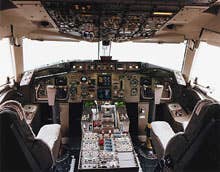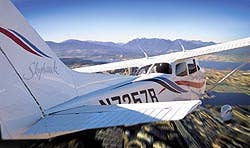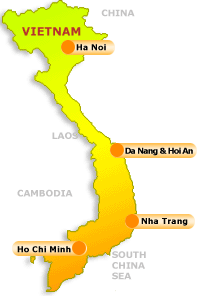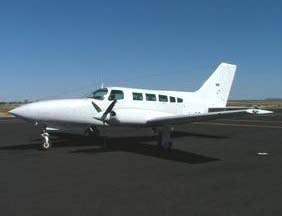CAP Helps Out Terrorism Exercise
In case you thought the Civil Air Patrol was about search and rescue and teaching kids to fly gliders, add dealing with a radiological and biological weapons attack to the organization’s long list of potential activities. CAP members in Chicago and Seattle took part in TOPOFF 2, a counter-terrorism exercise that concluded May 16. It was the second such simulation undertaken by the State Department, Department of Justice and the Federal Emergency Management Agency. And since the first one was in 2000, this one was a little more poignant. Homeland Security Secretary Tom Ridge said the exercise was aimed at finding the strengths and weaknesses of the emergency preparedness system. CAP officials counted their members among the strengths.
In case you thought the Civil Air Patrol was about search and rescue and teaching kids to fly gliders, add dealing with a radiological and biological weapons attack to the organization's long list of potential activities. CAP members in Chicago and Seattle took part in TOPOFF 2, a counter-terrorism exercise that concluded May 16. It was the second such simulation undertaken by the State Department, Department of Justice and the Federal Emergency Management Agency. And since the first one was in 2000, this one was a little more poignant. Homeland Security Secretary Tom Ridge said the exercise was aimed at finding the strengths and weaknesses of the emergency preparedness system. CAP officials counted their members among the strengths. In a news release, CAP spokeswoman Melanie LeMay said members "worked seamlessly" with emergency responders. In Chicago, about 30 pretended to be victims of the attacks but there were pilots ready to take biohazard technicians to the exercise site. Others escorted VIPs and helped with crowd control while some were part of a large group sent to hospitals to receive simulated inoculations against the biological agent. Seattle CAP members not only took part in the exercise, some critiqued the performance of the emergency personnel. Col. Doug Jones, of the CAP Washington Wing, said the organization showed officials its worth in an emergency. "Federal, state and local officials now have a much better understanding of how Civil Air Patrol can support the national homeland security strategy," he said.






